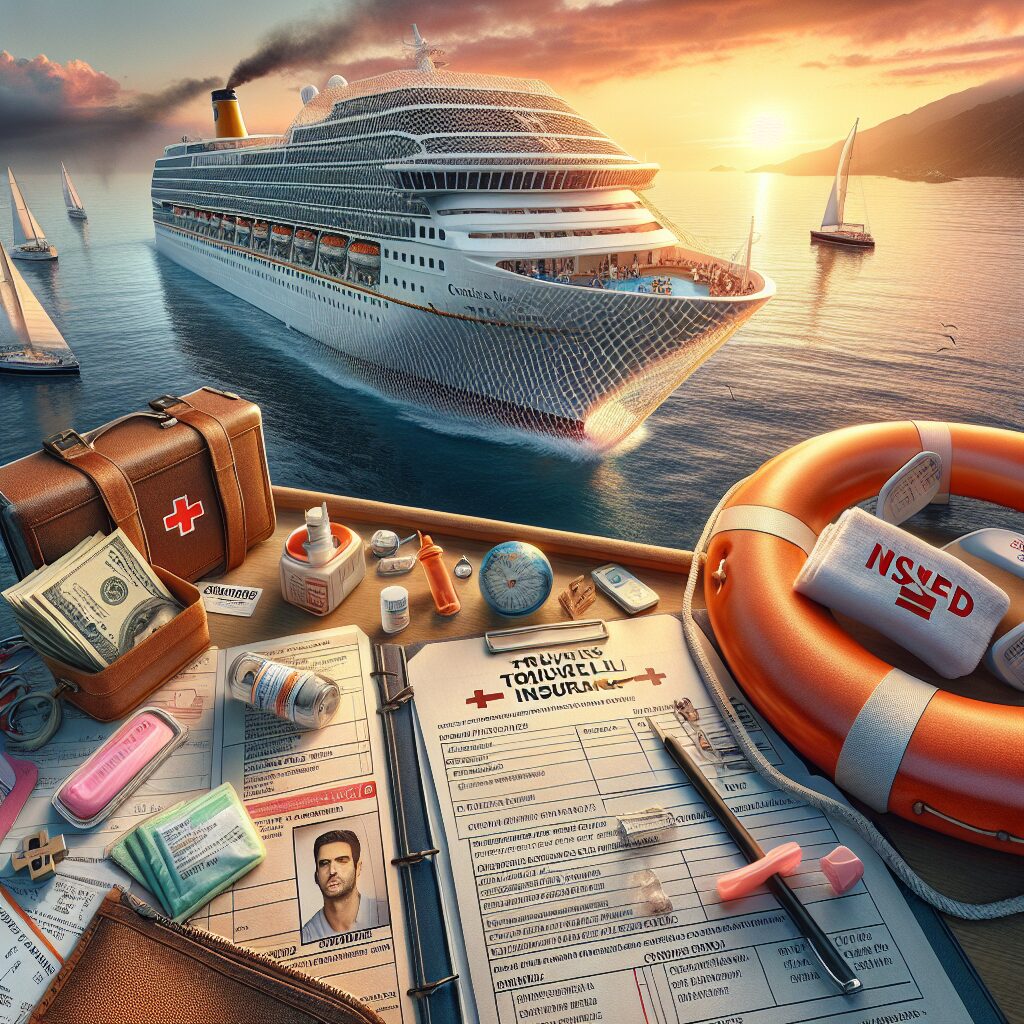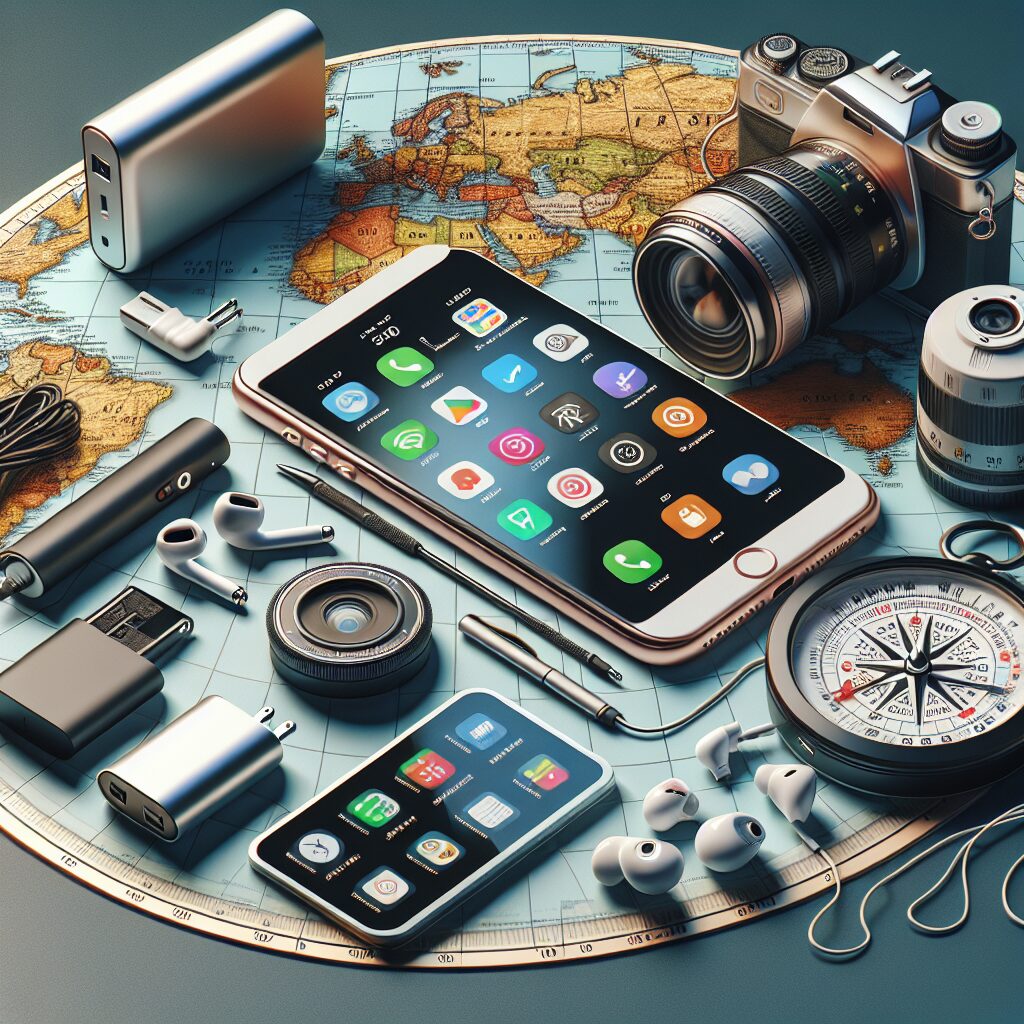Cruise travel insurance is often an overlooked aspect of planning a cruise vacation. Many people assume that their regular travel insurance or health insurance will cover them in case of any emergencies or unexpected situations that may arise during their cruise. However, this is not always the case. Cruise travel insurance is specifically designed to address the unique risks and challenges that come with cruising, which may not be covered by regular travel or health insurance policies.
One key aspect of cruise travel insurance is the coverage it provides for medical emergencies. While most cruise ships have medical facilities onboard, the cost of treatment can be exorbitant, especially if specialized medical attention or evacuation to a land-based hospital is required. Cruise travel insurance can help cover these costs, ensuring that travelers are not left with a hefty medical bill. Additionally, cruise travel insurance can also provide coverage for trip interruption or cancellation, lost luggage, missed connections, and even emergency medical evacuation.
In the following sections, we will delve into the key takeaways associated with cruise travel insurance, exploring the specific coverage options available and the potential benefits they can provide. From understanding the importance of trip cancellation coverage to exploring the nuances of medical evacuation, we will equip you with the necessary knowledge to make informed decisions when it comes to choosing the right cruise travel insurance for your next voyage. So, let’s dive in and discover why cruise travel insurance is essential for all cruisers.
Key Takeaways
1. Cruise travel insurance provides essential coverage for a variety of unforeseen events, such as trip cancellations, missed connections, and medical emergencies while onboard.
2. It is important to carefully review the terms and conditions of cruise travel insurance policies to ensure they offer adequate coverage for your specific needs, including pre-existing medical conditions and activities such as diving or shore excursions.
3. Insurance policies offered by cruise lines may have limited coverage and may not provide the same level of protection as independent travel insurance policies.
4. Cruise travel insurance can also offer reimbursement for non-refundable expenses, such as prepaid shore excursions or specialty dining reservations, in the event of cancellation due to covered reasons.
5. Considering the significant investment associated with cruises, purchasing travel insurance can provide peace of mind and help protect your financial investment in the event of unforeseen circumstances.
1. Is Cruise Travel Insurance Essential for a Stress-Free Vacation?
Section 1: Understanding the Importance of Cruise Travel Insurance
Heading 1: Protecting your Investment
Did you know that cruise vacations can be quite expensive? From booking your tickets to planning excursions, the costs can add up quickly. Cruise travel insurance provides coverage for unexpected events and helps safeguard your vacation investment. Whether it’s trip cancellation, medical emergencies, or lost luggage, having the right insurance can save you from financial risks.
Heading 2: Emergency Medical Coverage
Cruises often take you to various destinations, and while onboard medical facilities are available, they may not be equipped to handle all emergencies. Cruise travel insurance offers emergency medical coverage, ensuring you receive adequate treatment without worrying about exorbitant medical expenses. It provides peace of mind, allowing you to enjoy your vacation worry-free.
Heading 3: Trip Cancellation and Interruption Protection
Planning a cruise involves booking well in advance. However, unforeseen circumstances can arise, forcing you to cancel or cut short your trip. Cruise travel insurance typically covers trip cancellations due to personal reasons, illness, or unforeseen events like natural disasters. It provides reimbursement for non-refundable expenses, allowing you to reschedule or even recover a portion of your money.
Section 2: Coverage While Cruising
Heading 4: Onboard Injuries and Medical Evacuations
While cruising, accidents can happen. With the help of cruise travel insurance, if you sustain an injury while onboard, you can seek reimbursement for medical expenses. In severe cases that require urgent medical attention, insurance offers coverage for medical evacuations to the nearest appropriate medical facility, ensuring you receive the necessary care.
Heading 5: Protection Against Lost or Delayed Baggage
One of the common concerns for travelers is lost or delayed baggage. When cruising, you may have limited access to your belongings for a significant duration. Cruise travel insurance provides coverage for lost, stolen, or delayed baggage, reimbursing you for essential items you may need during your trip.
Section 3: Additional Benefits and Considerations
Heading 6: Cruise Interruption Due to Missed Ports
Sometimes, cruises are unable to dock at certain ports due to bad weather or unforeseen circumstances. With cruise travel insurance, if your itinerary is disrupted and you miss out on planned ports, you may be eligible for compensation or alternative plans. Travel insurance offers peace of mind by reducing the financial impact of unexpected itinerary changes.
Heading 7: Pre-Existing Medical Conditions
If you or a travel companion have pre-existing medical conditions, it is crucial to ensure your cruise travel insurance covers them. It’s important to read the policy’s fine print and understand any limitations or exclusions related to pre-existing conditions. Some policies may require a pre-existing conditions waiver or additional premium.
Section 4: Essential Guide to Choosing the Right Cruise Travel Insurance
Heading 8: Assessing Coverage Options
When selecting cruise travel insurance, consider the coverage options provided. Look for policies that include trip cancellation, medical emergencies, baggage loss, and trip interruption. Assess the coverage limits and make sure they align with your travel needs and budget.
Heading 9: Evaluating the Insurance Provider
Research the insurance provider’s reputation and customer reviews. Look for a company with a strong financial standing and excellent customer service. Read through customer experiences to ensure they have a proven track record of assisting travelers during emergencies.
Heading 10: Comparing Quotes
Obtain quotes from multiple insurance providers to compare coverage and costs. While price is important, ensure the quoted policy adequately covers your requirements. Consider deductibles, exclusions, and additional features to make an informed decision.
Tips for Choosing the Right Cruise Travel Insurance:
1. Review your existing coverage: Check if any existing insurance policies provide coverage for cruise travel to avoid duplications.
2. Read the policy details carefully: Ensure you understand the terms, conditions, and exclusions of the cruise travel insurance policy.
3. Consider the duration and type of cruise: Different policies may have specific coverage tailored for extended or international cruises.
4. Travel in groups: Group policies might be more cost-effective, so explore this option if traveling with family or friends.
5. Purchase insurance early: Buy travel insurance soon after booking your cruise to ensure coverage for any unforeseen events that may occur before departure.
Remember, investing in cruise travel insurance is a precautionary step to safeguard yourself from unexpected mishaps and enjoy a stress-free vacation.
Frequently Asked Questions
1. What is cruise travel insurance?
Cruise travel insurance is a specialized insurance policy that provides coverage specifically tailored to the unique risks and needs of travelers on a cruise vacation.
2. Why is cruise travel insurance essential?
Cruise travel insurance is essential because it protects you against unforeseen events and risks that may occur during your cruise, such as trip cancellation, medical emergencies, lost baggage, and travel delays.
3. What does cruise travel insurance typically cover?
Cruise travel insurance typically covers trip cancellation, trip interruption, emergency medical expenses, medical evacuation, lost baggage, delayed or missed departures, and accidental death or dismemberment.
4. Will my regular health insurance cover me on a cruise?
While some health insurance policies may provide limited coverage for medical emergencies on a cruise, it is important to note that many health insurance plans do not typically cover medical expenses incurred outside of your home country or outside of network coverage areas. Therefore, having cruise travel insurance ensures comprehensive coverage during your cruise vacation.
5. When should I purchase cruise travel insurance?
It is recommended to purchase cruise travel insurance as soon as you have booked your cruise. This ensures that you are covered for any unexpected events that may occur before your departure.
6. How much does cruise travel insurance cost?
The cost of cruise travel insurance varies depending on several factors such as your age, trip duration, destination, and the level of coverage you choose. Generally, it can range from 5-10% of your total trip cost.
7. Does cruise travel insurance cover pre-existing medical conditions?
Some cruise travel insurance policies offer coverage for pre-existing medical conditions, while others may have exclusions or require additional disclosure and payment of a premium. It is crucial to review the policy details and consult with the insurance provider to understand the coverage offered.
8. Are there any exclusions or limitations in cruise travel insurance?
Yes, cruise travel insurance policies may come with certain exclusions and limitations. These can include pre-existing conditions, certain high-risk activities, or specific destinations with travel advisories. It is essential to carefully read and understand the policy terms to know exactly what is covered and what is not.
9. Can I get a refund for my cruise if I have travel insurance?
Refunds for your cruise due to covered reasons are typically provided through trip cancellation coverage. However, it is essential to review the terms and conditions of the policy to understand the specific circumstances under which you may be eligible for a refund.
10. How do I choose the right cruise travel insurance policy?
When choosing a cruise travel insurance policy, consider your specific needs, such as the destination, duration of the cruise, activities planned, and your current health condition. Compare different policies, read reviews, and seek guidance from insurance professionals to select the policy that best suits your requirements.
Final Thoughts
Ensuring you have adequate cruise travel insurance is crucial to protect yourself financially and emotionally during your cruise vacation. The benefits provided by cruise travel insurance can give you peace of mind, knowing that you are covered in case of emergencies or unforeseen circumstances that may disrupt your travel plans. Don’t overlook the importance of cruise travel insurance and make it an essential part of your cruise preparations.
Remember, accidents and incidents can happen even on the most luxurious cruise ships. Don’t risk facing expensive medical bills, trip cancellations, or other mishaps without the protection of cruise travel insurance. Safeguard your cruise experience and enjoy your journey worry-free by investing in comprehensive cruise travel insurance.



